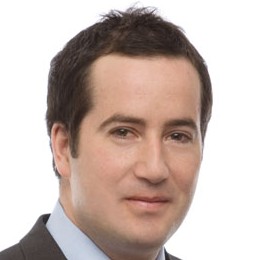 ScarX Therapeutics, a spin-off company created by MaRS Innovation and The Hospital for Sick Children (SickKids), was profiled by Business Without Borders on September 25, 2012.
ScarX Therapeutics, a spin-off company created by MaRS Innovation and The Hospital for Sick Children (SickKids), was profiled by Business Without Borders on September 25, 2012.
Sean Fine‘s article examines the strategic funding partnership MI pursued with NovoTek Therapeutics Inc. (NovoTek) in China to develop the anti-scarring cream, which was discovered by researchers at SickKids.
A multibillion-dollar market may await ScarX, a Toronto biomedical start-up, but first it had to figure out how to finance the development of its unique cream that reduces scarring after surgery.
Its answer to the shortage of Canadian venture capital in life sciences turned out to be a partnership with a drug company in China.
Benjamin Alman, the head of orthopedics at the Hospital for Sick Children, and the chair of orthopedic surgery at the University of Toronto, discovered that a molecule (nefopam, used as a mild analgesic in Europe and parts of Asia for more than 25 years) could target the cells responsible for producing scar tissue.
Researchers are developing what could be the world’s first prescription anti-scarring medication, in co-operation with MaRS Innovation (MI), a government-backed non-profit agency that creates and invests in start-up companies based on technologies arising from the city’s universities and medical institutions.
While MI was able to put together about $1 million from its own money and from the Ontario Centres of Excellence, it needs millions more for the cream to make it through human clinical trials and to ultimately reach the market. A fortuitous connection to the chief executive officer at NovoTek Therapeutics Co. Ltd. of Beijing led to an innovative arrangement—development funding for ScarX in return for rights to the Chinese market.

The Business Beyond Borders article also an interview with Ivan Waissbluth, MI project manager and the team lead for ScarX Therapeutics, which covered the financing challenges facing start-up companies working in the life sciences.
Business Without Borders: Why China?
Ivan Waissbluth: As a way of financing our way to our more global strategy. Our partner would like to commercialize the technology in China. They will support some of the development, we will also support part of the development, and together we’ll bring it through the various development steps. In a sense, we’re exchanging commercial rights for China for cash and development work up front.
BWB: What was the challenge that led you to China?
IW: There’s really only two ways of financing a company. You go to a venture capitalist and exchange shares for cash or you find yourself a partner and exchange commercial rights for cash. We felt that the valuation investors would perceive at this stage would be unfavourable, so finding a commercial or development partner was a better route.
The full interview is available on the Business Without Borders website to subscribers (subscription is free once you have registered).
Posted by Elizabeth Monier-Williams, marketing and communications manager.
